What term is used when a organisms move into a population?
Immigration
What is the term for "all of the same species in a given area at the same time"?
Population
What kind of growth is shown in the graph below:
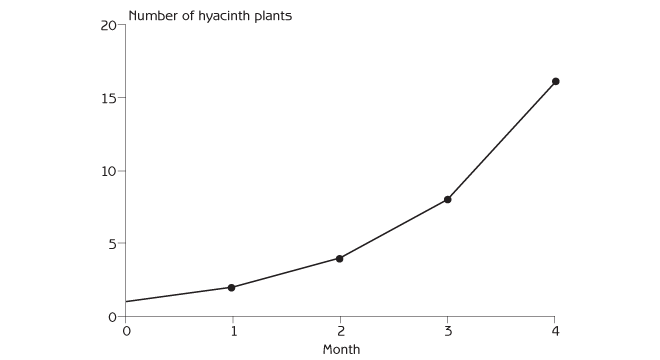
exponential growth
True or false. Limiting factors can be biotic or abiotic.
True.
Draw a food chain using the names of the trophic levels in the correct order.
What type of population growth has a graph shaped like an S and shows carrying capacity?
Logistic Growth
What is the term for "all of the biotic organisms in the same area"?
Community
If within the population of bison, the death rate is higher than the birth rate. What is happening to the size of the population?
It is decreasing.
All of the following are examples of limiting factors EXCEPT:
A. food B. disease
C. habitat D. temperature
D. temperature
This data table shows the number of organisms in a grassland ecosystem. Which level do you think represents the producers?
DOUBLE JEOPARY: Why did you choose that level?
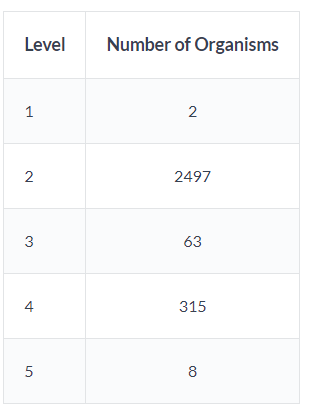
Level 2, it has the most organisms, therefore the most biomass and energy is found there.
What is the term used if a population's growth increases rapidly? DOUBLE JEOPARDY: What does this look like on a graph?
Exponential growth
DOUBLE JEOPARDY: J
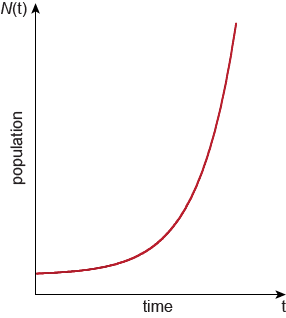
Ecosystem
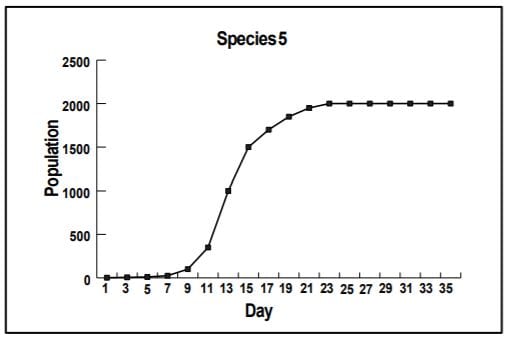
What is the carrying capacity of this population?DOUBLE JEOPARDY: What kind of growth is shown on the graph?
2000
DOUBLE JEOPARDY: logistic growth
Penguins evenly space their nests and protect them from other penguins. Penguins provide an example of what type of dispersion?
Uniform dispersion
The law of conservation of energy states that energy cannot be created or destroyed. In food chains, a large amount of energy is lost whenever there is a transfer of energy to the next level. In this food web, in which organism can the least amount of energy be found?
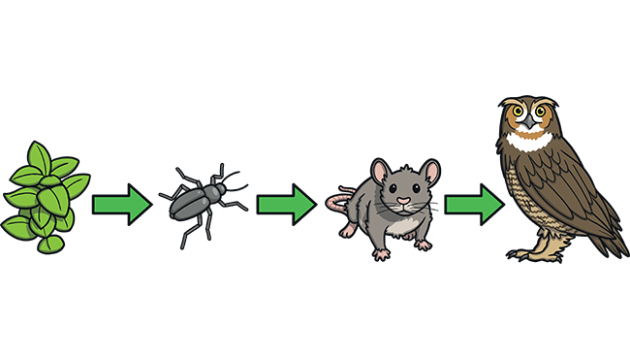
Owl- Tertiary consumer
What factors will cause a population size to decrease rapidly?
Natural disasters, human activities, lack of resources, no reproduction
What is the term for "a group of individuals that interbreed and produce offspring"?
Species
Biomass can describe the total mass of organisms in a given trophic level. On this Energy pyramid, where does the most biomass exist?
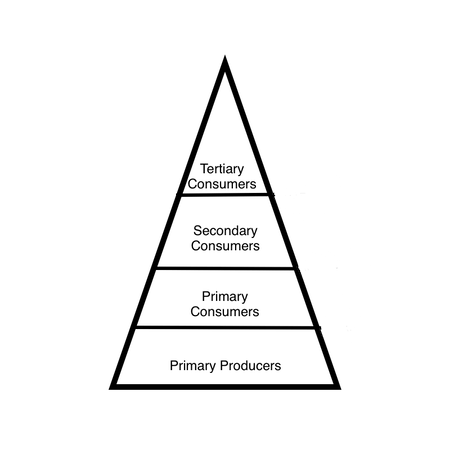
Producers have the most biomass available.
The producers in this food chain began with 5000kcal of energy. How much energy is available in the secondary consumer trophic level?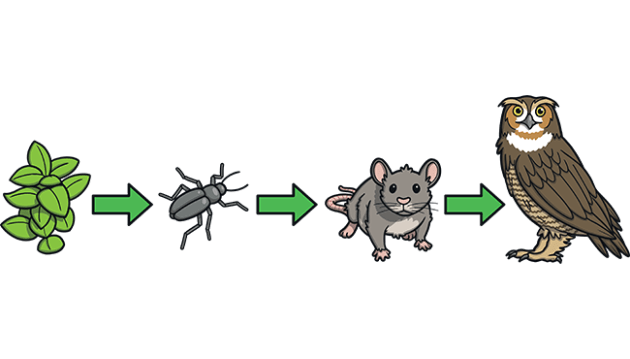
50kcal of energy
Young adult male chimpanzees look for mates outside their own population. The males then take the females back to their group. Which of the following occurs in females’ original population? A. emigration B. immigration
C. mortality(deaths) D. natality (births)
A. emigration
What is the term for "the basic level of organization that an ecologist studies"?
Organism
What is the other method of population counts besides capture-recapture?
When is this sampling method appropriate?
Random Sampling
Used on populations that do not move.
What characteristic of a population is created as a result of limiting factors within an environment?
Hint: It keeps the population from growing exponentially.
Carrying capacity
Why do arrows point in the right direction on a food chain?
It shows the path that energy flows through the trophic levels. It shows which organisms provide energy to the next trophic level.